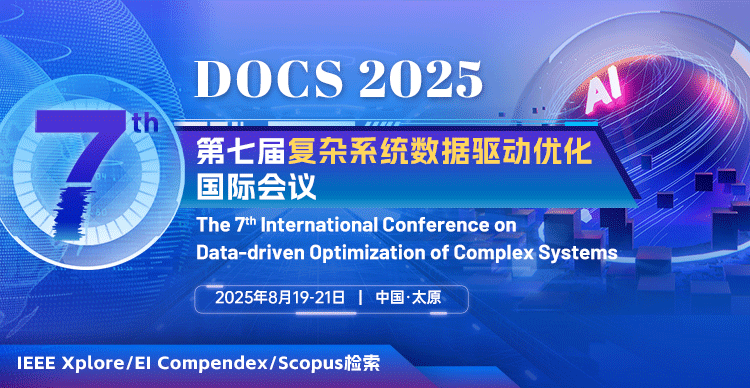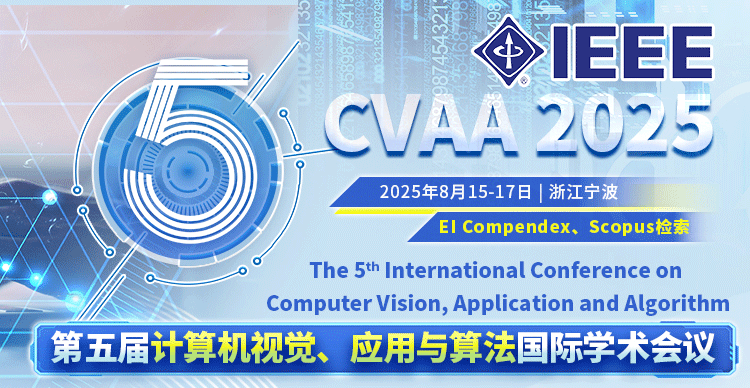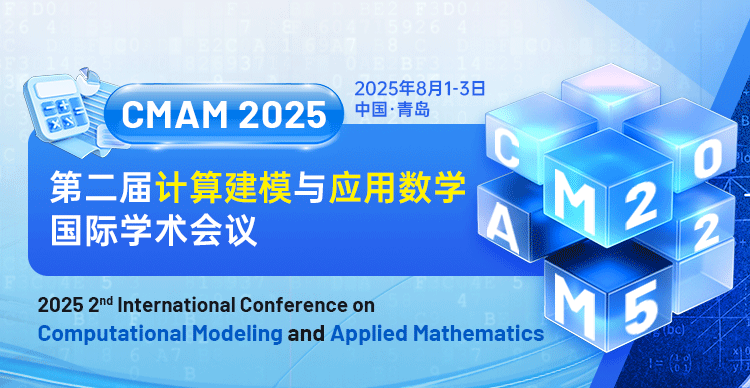第七届复杂系统数据驱动优化国际会议
The 7th International Conference on Data-driven Optimization of Complex Systems
大会简介
第七届复杂系统数据驱动优化国际会议(DOCS 2025)将于2025年8月19-21日在中国太原召开,组委会诚挚邀请与复杂系统数据驱动优化相关的广泛领域的研究人员、从业人员和学者踊跃投稿、积极参会交流。
组织单位
主办单位:太原科技大学
协办单位:西湖大学、中北大学、山东女子学院
技术支持:IEEE Computational Intelligence Society
组委会
大会荣誉主席
桂卫华=中南大学
梁卫国-太原科技大学
唐立新-东北大学
大会主席
金耀初-西湖大学
谢刚-太原科技大学
程序委员会主席
崔志华-太原科技大学
Jonathan Garibaldi-宁波诺丁汉大学
薛冰-惠灵顿维多利亚大学
阳春华-东南大学
张孟杰-惠灵顿维多利亚大学
张兴义-安徽大学
刘奇奇-西湖大学
技术委员会主席
毕莹, 郑州大学
陈伟能,华南理工大学
孙超利,太原科技大学
田野,安徽大学
王健,中国石油大学
詹大为,西南交通大学
出版主席
何成,华中科技大学
潘理虎,太原科技大学
王晗丁,西安电子科技大学
喻果,南京工业大学
岳鹏,西湖大学
严宇萍,西湖大学
宣传主席
李密青,伯明翰大学
李珂,埃克塞特大学
梅一,惠灵顿维多利亚大学
王新杰,杭州师范大学
张浩宇,杭州师范大学
地方组织主席
秦淑芬,太原科技大学
王浩,太原科技大学
于海波,中北大学
企业竞赛组委会主席
刘昶,中国科学院,沈阳自动化研究所
张新杰,上海久章智能科技有限公司
征稿主题
我们鼓励感兴趣的作者提交以前未发表的文章,其中包括但不限于以下内容:
1. 数据驱动学习:
深度学习、强化学习、迁移学习、自监督学习、分布式学习和联邦学习、可信机器学习、生成模型、大型语言模型(LLMs)、LLMs的自动验证、 小型和大型模型之间的协调、人工智能用于科学和工程、人工智能用于教育和社会、人工智能用于艺术、安全人工智能;
2. 数据驱动的优化和决策:
数据驱动的优化算法、贝叶斯优化、神经组合优化、大规模和多目标优化、机器学习与优化的集成、数据驱动的决策范式、智能调度、 组合优化的强化学习、分布式优化和联邦优化、工业和制造系统分析以及决策、 应用扩散模型的优化、LLMs 辅助优化;
3. 数据驱动的建模与控制:
学习与自适应控制、鲁棒控制、智能控制、基于优化的最优控制、模型预测控制、故障检测与识别、混合智能系统、神经控制、模糊逻辑控制、网络化控制、工业自动化、智能交通系统、环境监控控制、智能制造系统、绿色通信系统;
4. 大数据分析与应用:
大数据存储与挖掘、数据协调、整合与处理、大数据分析与度量、多源多模态、数据库管理系统、大数据服务、面向大数据的云计算技术、 隐私保护大数据分析、可视化城市数据分析、智能交通数据分析、医疗保健数据分析、生物信息学。
论文投稿
DOCS 2025所有的投稿都必须经过2-3位组委会专家审稿,经过严格的审稿之后,最终所有录用的论文将以论文集的形式出版,见刊后由出版社提交至IEEE Xplore, EI, Scopus检索。
>>>投稿注意事项:
◆ EI会议的稿件排版后不得少于6页。
◆ 会议仅接受全英稿件。如需翻译服务,请联系会议老师。
◆ 发表论文的作者需提交全文进行同行评审,仅做报告不发表论文,只需提交摘要。
◆ 论文应具有学术或实用价值,未在国内外学术期刊或会议发表过。涉嫌抄袭的论文将不被出版。
◆ 录用邮件发出后,会议主办方将统一采用 IEEE PDFexpress checking 为所有接收论文免费查重,重复率超 30%的将退回修改,反复查重不过的可能导致拒搞,并将由作者自行承担。
◆ 论文格式需按出版社要求的模板进行排版,会议论文模板下载 → 前往“资料下载”栏目下载。
参会须知
DOCS 2025设置有口头演讲/海报展示/听众参会三种方式,选择其中一种进行报名参会均可在会后领取参会证明
1、口头演讲:申请口头报告,时间为10-15分钟左右
2、海报展示:制作A1尺寸彩色海报,线下展示
3、听众参会:不投稿仅参会,可与现场嘉宾/学者进行交流互动
4、汇报PPT和海报,请于会议前一周提交至大会邮箱
5、论文录用后可享一名作者免费参会名额
Welcome to the official website of The 7th International Conference on Data-driven Optimization of Complex Systems (DOCS 2025).
The 7th International Conference on Data-driven Optimization of Complex Systems (DOCS 2025) warmly invite submissions from researchers practitioners and academics in the expansive field related to data-driven optimization of complex systems. We encourage interested authors to submit previously unpublished contributions from a broad range of including but not limited to the following.
● Data-driven Learning: Deep learning reinforcement learning transfer learning self-supervised learning distributed and federated machine learning trustworthy machine learning generative models large language models (LLMs) automated verification of LLMs coordination between small and large models AI for science and engineering AI for education and society AI for art secure AI;
● Data-driven Optimization and Decision Making: Data-driven optimization algorithms Bayesian optimization neural combinatorial optimization large-scale and multi-ob
● Data-driven Modeling and Control: Learning and adaptive control robust control intelligent control optimization-ba
● Big Data Analysis and Application: Big data storage and mining data coordination integration and processing big data analytics and metrics theory and methods of multi-source big data fusion data ba
Paper Submission Deadline:June 22 2025
Notification of Acceptance:July 15 2025
Camera-Ready Submission:July 22 2025
Early Bird Registration:July 20 2025
Committee
· Honorary Chairs
Weihua Gui-Central South University、Academician of Chinese Academy of Engineering
Weiguo Liang-President of Taiyuan University of Science and Technology
Lixin Tang-Vice President of Northeastern University、Academician of Chinese Academy of Engineering、IEEE Fellow
· General Chairs
Yaochu Jin-Westlake University、Member of Academia Europaea IEEE Fellow IEEE CIS President
Gang Xie-Vice President of Taiyuan University of Science and Technology
· PC Chairs
Zhihua Cui-Taiyuan University of Science and Technology
Jon Garibaldi-University of Nottingham Ningbo China
Bing Xue-Victoria University of Wellington
Chunhua Yang-Central South University
Mengjie Zhang-Victoria University of Wellington
Xingyi Zhang-Anhui University
Qiqi Liu-Westlake University
· TPC Chairs
Ying Bi-Zhengzhou University
Weineng Chen-South China University of Technology
Chaoli Sun-Taiyuan University of Science and Technology
Ye Tian-Anhui University
Jian Wang-China University of Petroleum
Dawei Zhan-Southwest Jiaotong University
· Publication Chairs
Cheng He-Huazhong University of Science and Technology
Lihu Pan-Taiyuan University of Science and Technology
Handing Wang-Xidian University
Guo Yu-Nanjing Tech University
Peng Yue-Westlake University
Yuping Yan-Westlake University
· Publicity Chairs
Miqing Li-University of Birmingham
Ke Li-University of Exeter
Yi Mei-Victoria University of Wellington
Xinjie Wang-Hangzhou Normal University
Haoyu Zhang-Hangzhou Normal University
· Local Organization Chairs
Shufen Qin-Taiyuan University of Science and Technology
Hao Wang-Taiyuan University of Science and Technology
Haibo Yu-North University of China
· Enterprise Competition Committee Chairs
Chang Liu-Shenyang Institute of Automation Chinese Academy of Sciences
Xinjie Zhang-Shanghai Jiuzhang Intelligent Technology Co. Ltd.
CFP
The topics of interest for submission include but are not limited to:
■ Data-driven Learning
- · Deep learning
- · Reinforcement learning
- · Transfer learning
- · Self-supervised learning
- · Distributed and federated machine learning
- · Trusted machine learning
- · Generative models
- · Large language models ( LLMs )
- · Automatic verification of LLMs
- · Coordination of small and large models
- · AI for science and engineering
- · AI for education and society
- · AI for art
- · Secure AI
■ Data-driven optimization and decision-making :
- · Data-driven optimization algorithms
- · Bayesian optimization
- · Neural combinatorial optimization
- · Large-scale and multi-ob
jective optimization - · Integration of machine learning and Optimization
- · Data-driven decision paradigm
- · Intelligent scheduling
- · Reinforcement learning of combinatorial Optimization
- · Distributed and joint optimization
- · Industrial and manufacturing system analysis and decision-making
- · Diffusion models for optimization
- · LLM-assisted optimization
■ Big data analysis and application
- · Big data storage and mining
- · Data coordination
- · Integration and processing
- · Big data analytics and metrics
- · Theory and methods of multi-source big data fusion
- · Databa
se management system - · Big data service
- · Big data oriented cloud computing technology
- · Privacy preserving big data analysis
- · Visual city data analysis
- · Intelligent transportation data analysis
- · Healthcare data analysis
- · Bioinformatics
■ Data-driven modeling and control
- · Learning and adaptive control
- · Robust control
- · Intelligent control
- · Optimization-ba
sed and optimal control - · Model predictive control
- · Fault detection and identification
- · Hybrid intelligent system
- · Neural control
- · Fuzzy logic control
- · Networked control
- · Industrial automation
- · Intelligent transportation system
- · Environmental monitoring and control
- · Intelligent manufacturing system
- · Green communication system
· Submission & Publication
All papers both invited and contributed will be reviewed by two or three experts from the committees. After a careful reviewing process all accepted papers of DOCS 2025 will be published by conference proceedings and it will be submitted to EI Compendex and Scopus for indexing.
The use of artificial intelligence (AI)-generated text in an article shall be disclosed in the acknowledgements section of any paper submitted to an IEEE Conference or Periodical. The sections of the paper that use AI-generated text shall have a citation to the AI system used to generate the text.
All submitted articles should report original research results experimental or theoretical not previously published or under consideration for publication elsewhere. Articles submitted to the conference should meet these criteria. We firmly believe that ethical conduct is the most essential virtue of any academics. Hence any act of plagiarism or other misconduct is totally unacceptable and cannot be tolerated.






